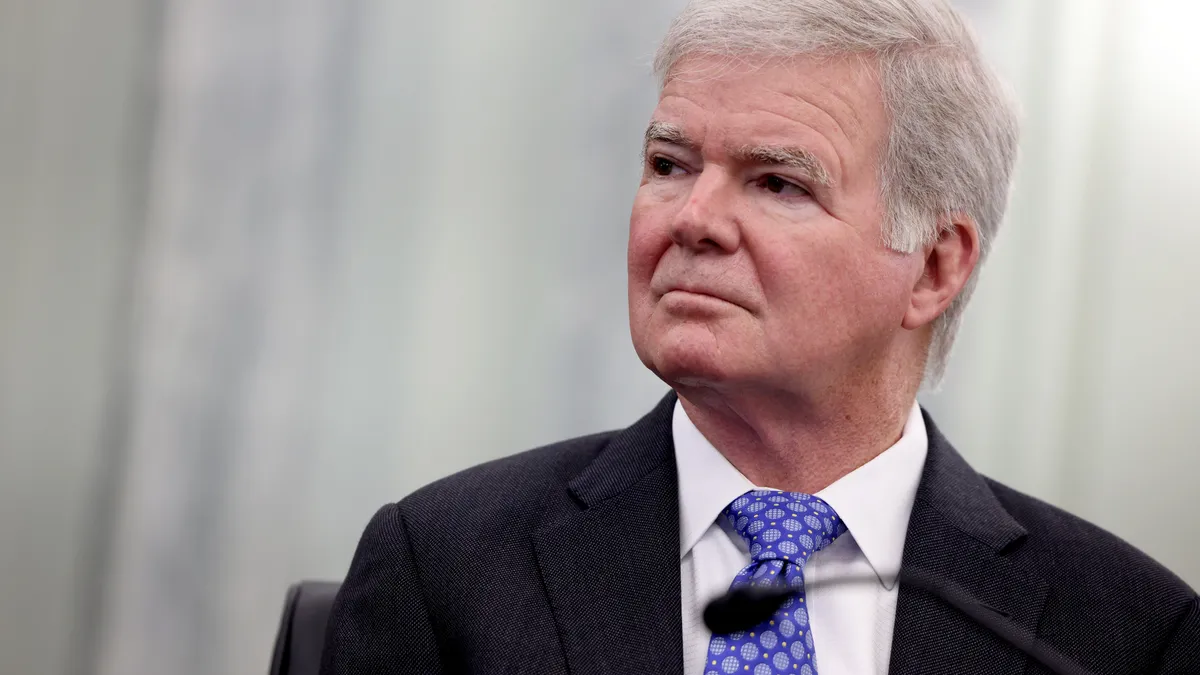Dive Brief:
-
The NCAA on Wednesday suspended its rules prohibiting student-athletes from earning money off their name, image and likeness, shattering a longstanding convention of the collegiate sports system.
-
Governance committees across all three divisions voted to adopt an interim policy that allows college athletes to participate in NIL activities consistent with state laws.
-
Several state laws greenlighting NIL compensation take effect Thursday, which spurred the NCAA to move quickly on the policy. The association said it will remain in place until the organization creates new rules or federal NIL legislation is passed.
Dive Insight:
The contemporary fight for student-athletes' NIL rights can be traced to California, which in 2019 became the first state to pass a law allowing them to profit off their celebrity. At the time, the NCAA pressured state lawmakers to forgo the bill, with NCAA President Mark Emmert insinuating California schools would be banned from playing in championship games if it passed.
Legislators did not buckle, and the bill's passage set off a slew of other state proposals over the last couple of years, several of which take effect Thursday. These include laws in Alabama, Florida and Georgia.
But the rapid adoption of NIL laws has created a confusing patchwork, as the state statutes have differing provisions. This has raised the question whether a federal standard is needed, a move the NCAA has come around to supporting. The association has historically opposed student-athlete pay measures, claiming they erode the amateur tradition of college sports.
Federal lawmakers have introduced several NIL bills, none of which have gained traction. And while some colleges have prepped for state laws coming into effect, this has proven difficult with the differences in the statutes and little NCAA guidance.
"With the variety of state laws adopted across the country, we will continue to work with Congress to develop a solution that will provide clarity on a national level," Emmert said in a statement Wednesday. "The current environment — both legal and legislative — prevents us from providing a more permanent solution and the level of detail student-athletes deserve."
The NCAA was slated to vote on a more substantial NIL policy in January, but the organization shelved the matter amid scrutiny from the U.S. Department of Justice, which implied it could infringe on antitrust laws.
The NCAA sought to have student-athletes report NIL activity to a third party. But the Justice Department raised concerns the provision could allow the association to set prices for students licensing their NIL, according to USA Today.
Further complicating matters was the U.S. Supreme Court unanimously handing down a decision this month affirming that colleges could award student-athletes a wide range of education-related perks.
In a biting concurring opinion, Justice Brett Kavanaugh suggested the association was open to more challenges on its ban on student-athlete pay, which he said runs afoul of antitrust laws.
"Nowhere else in America can businesses get away with agreeing not to pay their workers a fair market rate on the theory that their product is defined by not paying their workers a fair market rate," Kavanaugh wrote. "And under ordinary principles of antitrust law, it is not evident why college sports should be any different."











